| | Republicans and Silicon Valley are forced to take sides in the Musk-Trump row, NATO leaders agree a ͏ ͏ ͏ ͏ ͏ ͏ |
| |  | Flagship |  |
| |
|
The World Today | 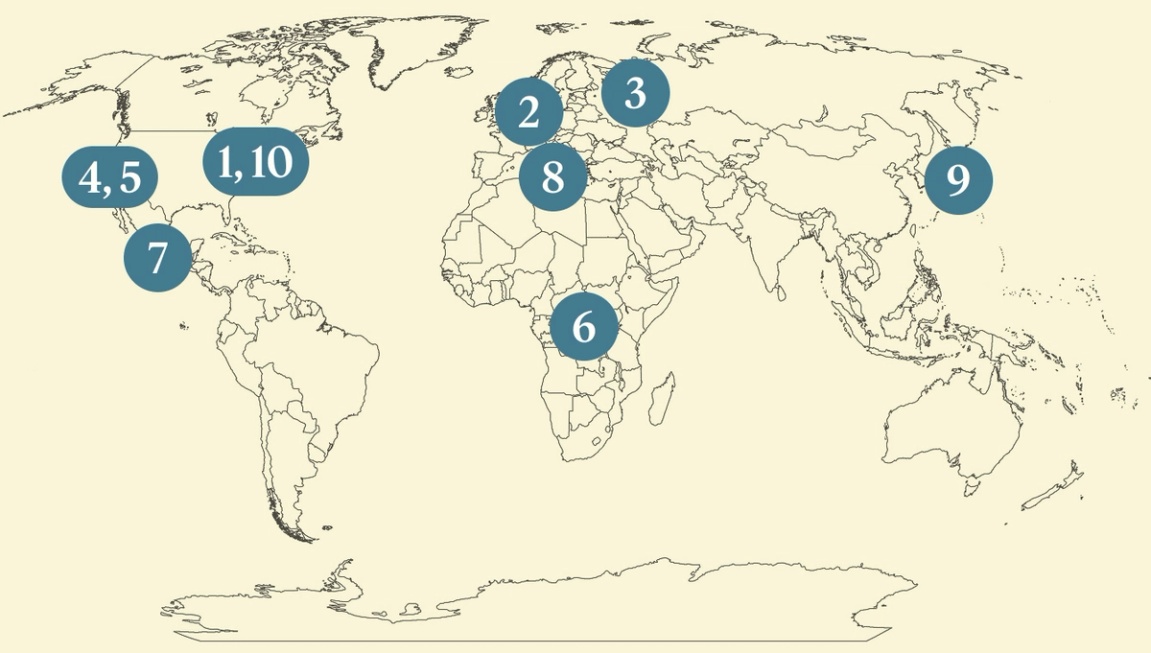 - Musk-Trump spat fallout
- NATO agrees defense boost
- Russia set for rate cut
- AI boss calls for AI rules
- Goldman: AI use ‘soaring’
- GOP divided over PEPFAR
- Mexico gun case blocked
- Italy votes on naturalization
- Japan rice crisis worsens
- Historians’ digital problem
 Colombia’s deforestation in numbers, and the best shows in London’s big art fair. |
|
Musk-Trump spat envelops US |
 Nathan Howard/File Photo/Reuters Nathan Howard/File Photo/ReutersA dispute between Elon Musk and US President Donald Trump engulfed Wall Street, Silicon Valley, and Washington. The feud — Musk alleged Trump was mentioned in the Jeffrey Epstein files; Trump threatened to end Musk’s government contracts — sent Tesla’s stock price slumping 14%, while Republicans scrambled to stop it damaging their legislative agenda. The GOP largely backed Trump, while The Information said the rift “doesn’t necessarily signal a broader break between tech and the White House.” The spectacle reflects a characteristic of Trump presidencies, Semafor’s Ben Smith wrote: Where previous administrations had their disputes in private, this one plays it out in public, often leaving once-connected political journalists as “mere television critics.” |
|
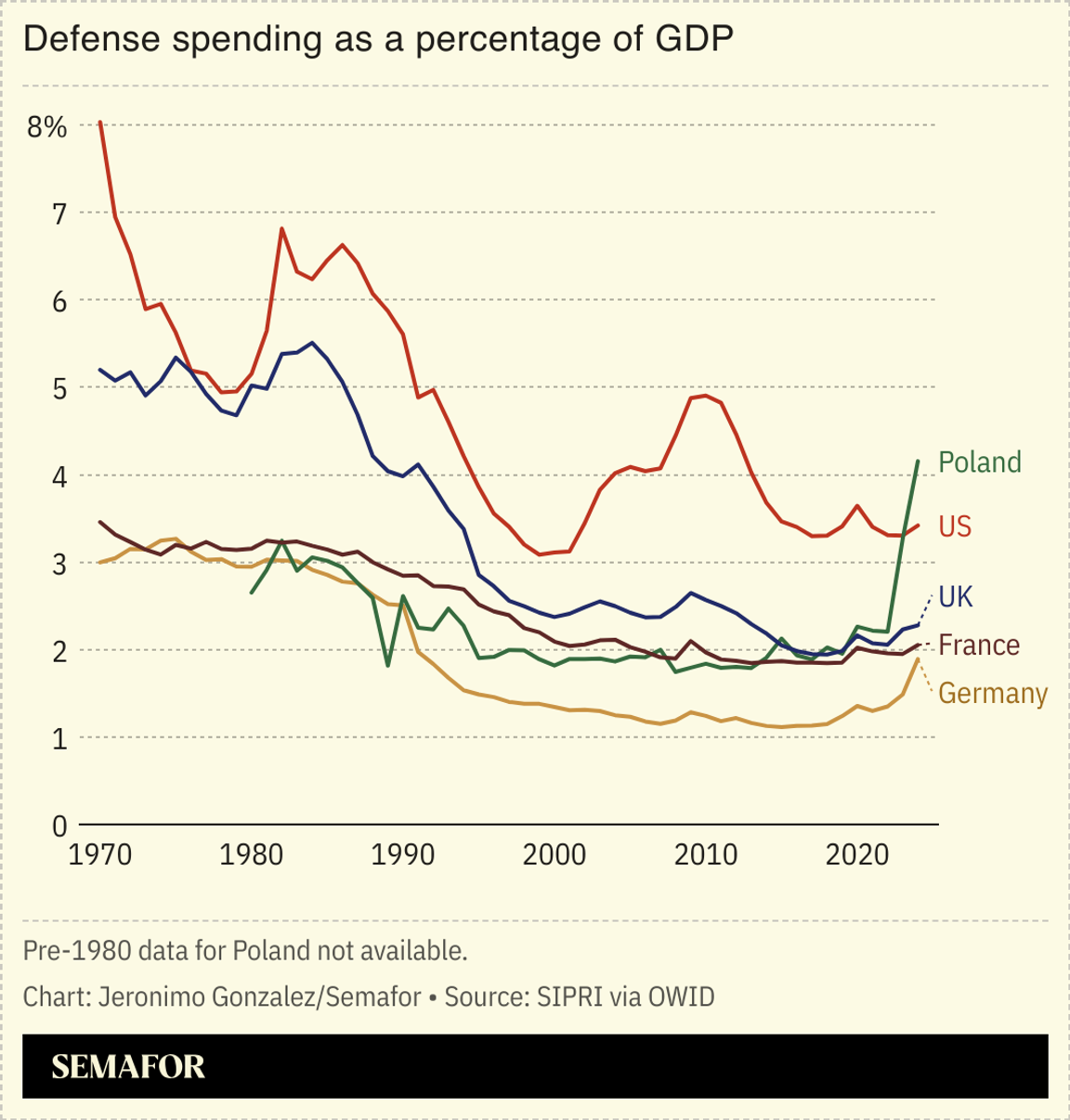 NATO leaders agreed their most ambitious military expansion since the Cold War. The US and NATO leadership are pushing to increase the alliance’s spending target from 2% of each member country’s GDP to 5%, including 1.5% on related defense expenditures such as logistics and cybersecurity. While major countries such as the UK are holding out on the higher target, arguing that the priority should be pushing all allies to meet their existing commitment, the deal is expected to be finalized in a summit this month. The alliance also pledged a five-fold increase in surface-to-air defense systems, and set out a detailed list of each country’s specific contributions to NATO’s military capabilities. |
|
Russia set for rare rate cut |
|
AI boss warns against deregulation |
 Dario Amodei. Wikimedia Creative Commons photo/TechCrunch/CC BY 2.0 Dario Amodei. Wikimedia Creative Commons photo/TechCrunch/CC BY 2.0The CEO of artificial intelligence company Anthropic called on the White House to drop its plan to limit AI regulation. Dario Amodei said a provision in President Donald Trump’s bill to place a 10-year moratorium on state-level regulation of AI was “far too blunt” with AI advancing “head-spinningly fast.” He called instead for a national framework requiring leading firms to disclose their safety policies and efforts to reduce AI risk. Amodei — who warned last week that technology could wipe out half of all entry-level white-collar jobs in five years — is not the only AI boss calling for regulation of the technology: DeepMind’s leader recently called for internationally agreed rules to implement safeguards across borders. |
|
 Chris J. Ratcliffe/Reuters Chris J. Ratcliffe/ReutersBusinesses’ use of artificial intelligence is accelerating, though growth is most evident in larger companies and specific sectors, a new report said. One in ten US firms is using AI to produce goods and services, Goldman Sachs said, with implementation greatest in education, financial, professional services, and technology. The analysis is largely in line with other research: The consultancy Bain said last month that the share of companies listing AI as a top priority had risen to 15% from 9% in barely a year. Goldman itself is no stranger to using the technology: In January, it debuted a generative AI assistant which the bank hopes will soon become “really like talking to another GS employee,” its chief information officer said. |
|
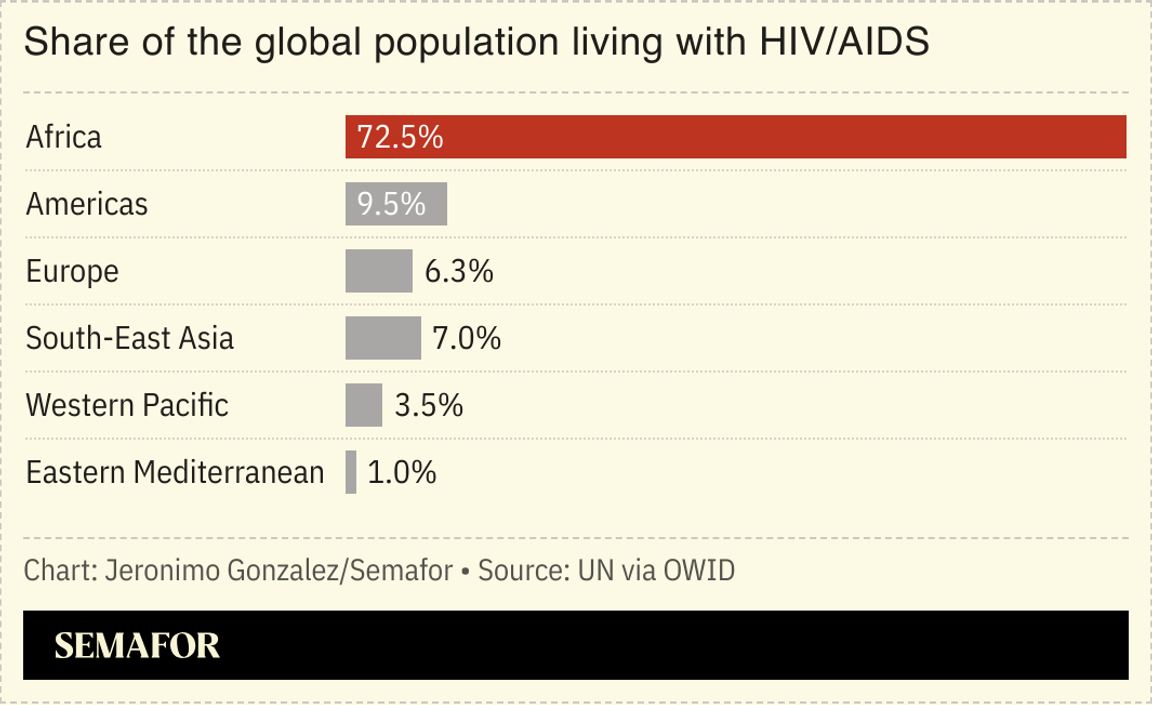 US Republicans are divided over plans to scrap a well-regarded, long-established effort to battle HIV and AIDS worldwide. The proposed cuts to PEPFAR are part of a bill that would slash as much as $900 million from global health programs. Yet the GOP holds only a thin Congressional majority, and senior Republicans have already voiced opposition to any inclusion of the HIV/AIDS program: “If PEPFAR is in there, that is a red line,” one told Semafor’s Eleanor Mueller. The potential cuts come with Washington pulling back from global health funding: The Washington Post reported yesterday that more than $12 million worth of contraceptives and HIV-prevention medications lying in distribution centers since January will likely be destroyed. |
|
SCOTUS blocks Mexico gun case |
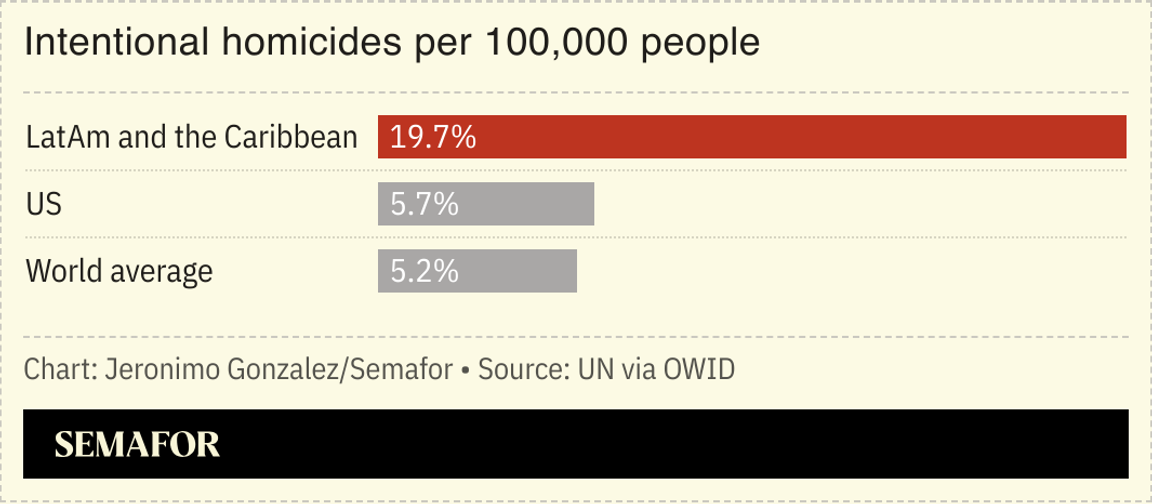 The US Supreme Court blocked a case brought by Mexico’s government that alleged that American gun makers sell weapons they know will be funneled to cartels. Despite the unanimous decision to block the case, both Washington and Mexico City agree that Mexican cartels get most of their weapons from US sellers; the guns are used to defend drug trafficking which has led to record overdose deaths in the US. A recent survey showed at least two-thirds of the hundreds of thousands of weapons seized in Mexico each year come from the US, as is the case across much of Latin America, a factor in it being the world’s most dangerous region. |
|
 Top Chef, which airs its 22nd season finale next week, has been shaping how we think and talk about food for the past two decades. This week, Ben and Max talk to longtime judges Tom Colicchio and Gail Simmons about how Top Chef has influenced the restaurant industry, how food media has evolved, and why the show has gotten nicer over the years. Plus, they share the social media food trends they hate the most. |
|
Italy weighs easing naturalization |
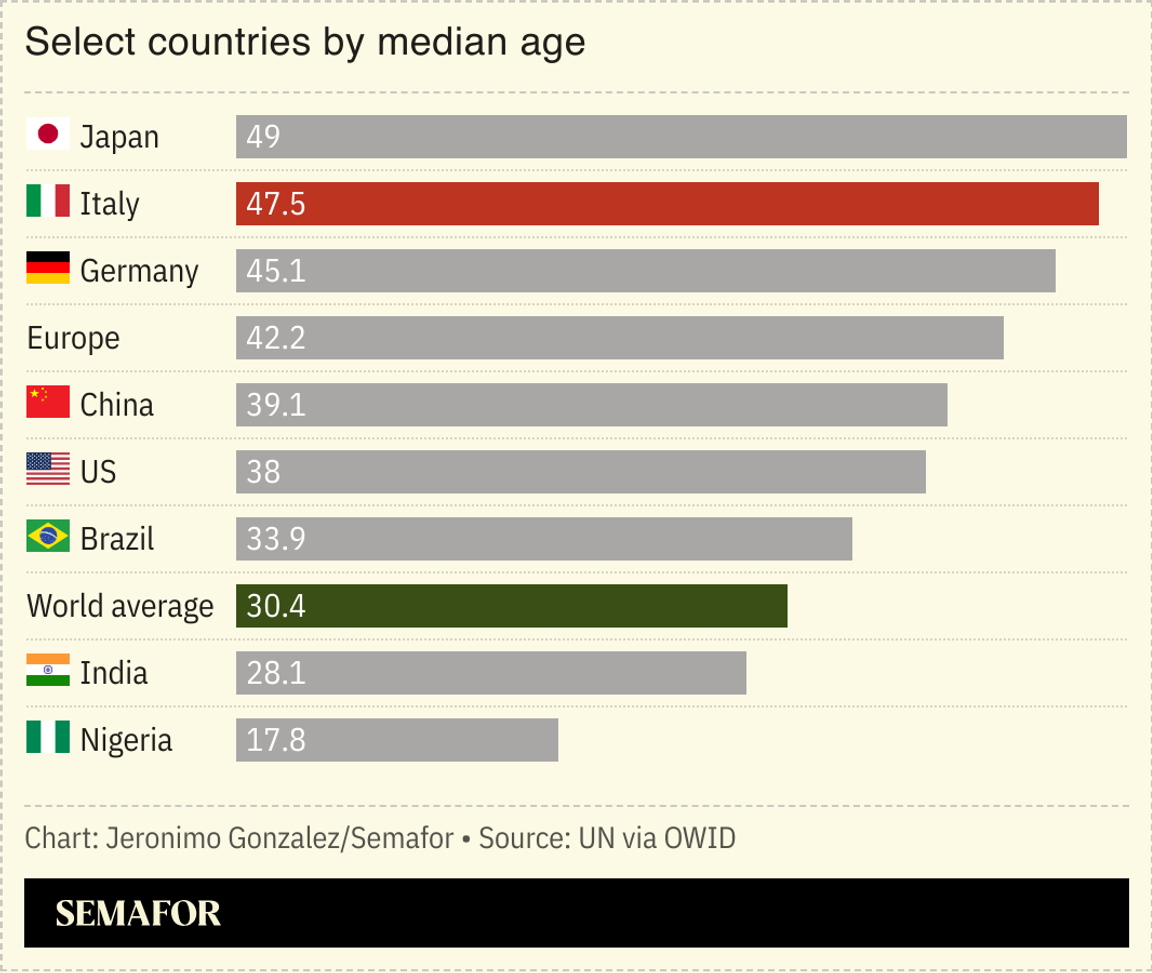 Italy will vote this weekend in a referendum on making it easier for non-European Union migrants to gain citizenship. Around 9% of Italy’s population are legal foreign residents, including many who were born to migrants from abroad, but naturalization for non-EU citizens is “arduous — and lengthy,” the Financial Times reported. The ruling right-wing coalition opposes the change, but with nearly a quarter of Italy’s population aged over 65, supporters think easing naturalization will reduce the alienation of ethnic minority youth and boost the economy. Other European countries also grappling with the tension between aging workforces and unpopular migration are reaching different conclusions: Britain plans to double the time required for most migrants to obtain UK citizenship to 10 years. |
|
Japan rice shortage worsens |
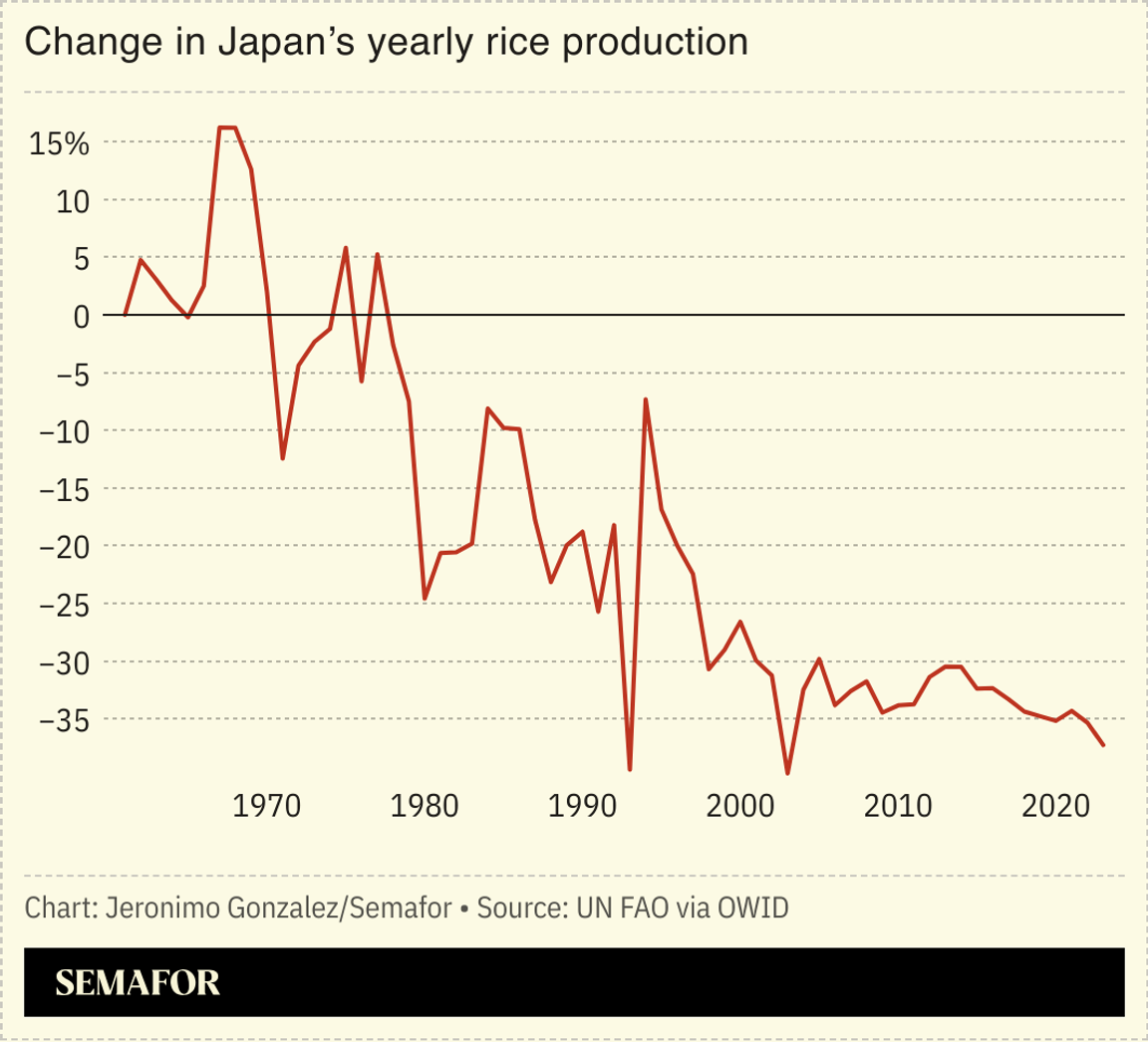 Japan’s rice shortage continued to bite, with citizens queuing for hours and prices at an all-time high. The government released 300,000 tons of rice from its strategic reserve three weeks ago to rein in prices, which have been driven up by a combination of a poor harvest in 2023 and an end to decades-long deflation, but the effect has been limited. The prime minister has set up an emergency committee to discuss rice policy reform, but it is complicated by longstanding rules protecting farmers from competition, including limits on rice imports: Farmers make up less than 1% of Japan’s population but are a powerful political lobby, and the food staple’s inflation is creating political pressure ahead of July elections. |
|
|